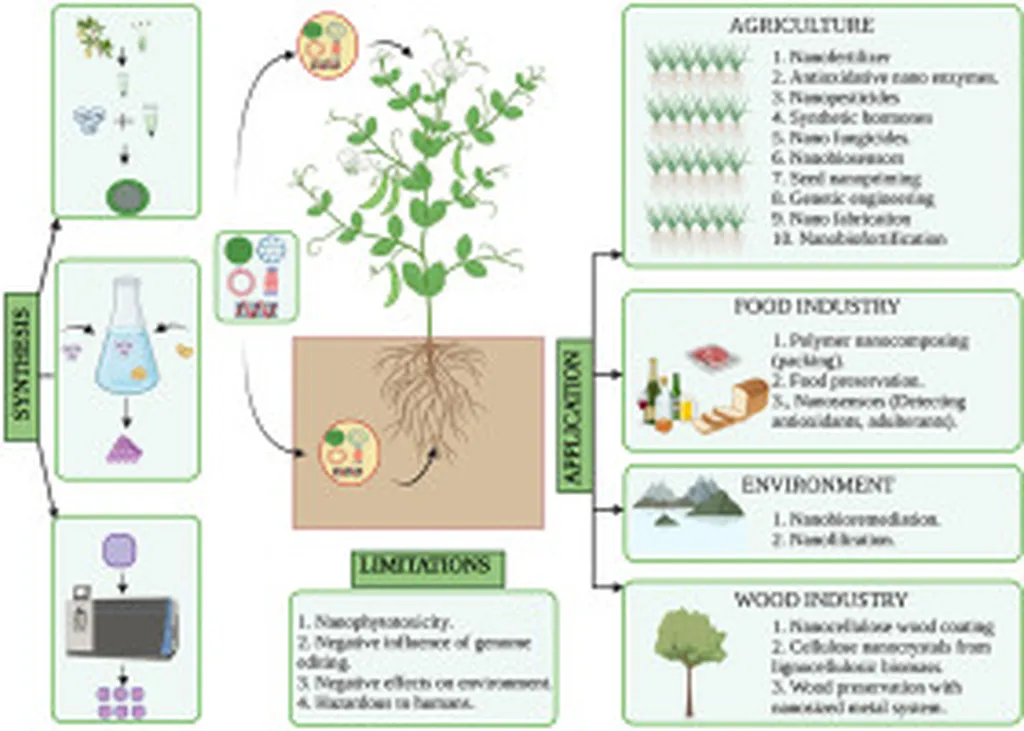In the quest for sustainable agriculture, scientists are turning to an unlikely ally: tiny particles of silica. A recent study published in the journal *Frontiers in Plant Science* (translated from *Frontiers in Sustainable Food Systems*) explores how silica nanoparticles (SiNPs) could revolutionize farming by boosting crop resilience and reducing environmental harm. At the forefront of this research is Konappan Surya, a scientist from the Department of Agronomy at Tamil Nadu Agricultural University in Coimbatore, India. His work suggests that SiNPs could be a game-changer for modern agriculture, offering a sustainable solution to some of the industry’s most pressing challenges.
Agriculture today faces a daunting array of challenges, from climate change to soil degradation and water contamination. Traditional farming methods often rely on synthetic inputs that, while effective in the short term, can have long-term ecological consequences. Surya’s research highlights how SiNPs could address these issues by improving nutrient delivery, enhancing stress tolerance, and reducing the environmental footprint of agricultural practices.
One of the most significant advantages of SiNPs is their ability to enhance nutrient use efficiency (NUE). “SiNPs act as a controlled and sustained release mechanism for nutrients, ensuring that crops receive the right amount of nutrients at the right time,” Surya explains. This not only minimizes nutrient loss but also ensures consistent crop uptake, leading to healthier plants and higher yields.
Beyond nutrient delivery, SiNPs also bolster plant resilience against both abiotic and biotic stresses. Abiotic stresses, such as drought and salinity, can severely impact crop productivity. SiNPs improve photosynthetic efficiency and regulate stress-responsive genes, helping plants thrive even in harsh conditions. “They fortify plant cell walls, creating both biochemical and mechanical defenses,” Surya adds, highlighting the dual role of SiNPs in protecting plants from environmental stressors and pests.
The environmental benefits of SiNPs are equally compelling. Unlike conventional agrochemicals, SiNPs are biocompatible and environmentally safe. They degrade into bioavailable monosilicic acid, which enriches soil health and supports beneficial microbial communities. This degradation process also mitigates heavy metal toxicity, further reducing the environmental impact of agricultural practices.
The commercial implications of this research are substantial. As the global population grows and climate change intensifies, the demand for sustainable and efficient agricultural practices will only increase. SiNPs offer a promising solution that aligns with global sustainability goals, potentially transforming the way we farm and reducing the environmental footprint of the agricultural sector.
Surya’s research paves the way for future developments in sustainable agriculture. By exploring the functional properties, application, and mechanism of SiNPs, scientists can develop innovative strategies to manage biotic and abiotic stresses, ultimately contributing to a more resilient and sustainable food system. As the world seeks to balance productivity with environmental stewardship, SiNPs could emerge as a key tool in the quest for agricultural sustainability.
In the words of Surya, “This is just the beginning. The potential of SiNPs in agriculture is vast, and we are only scratching the surface of what they can achieve.” As research continues, the agricultural industry can look forward to a future where SiNPs play a pivotal role in shaping sustainable and efficient farming practices.

